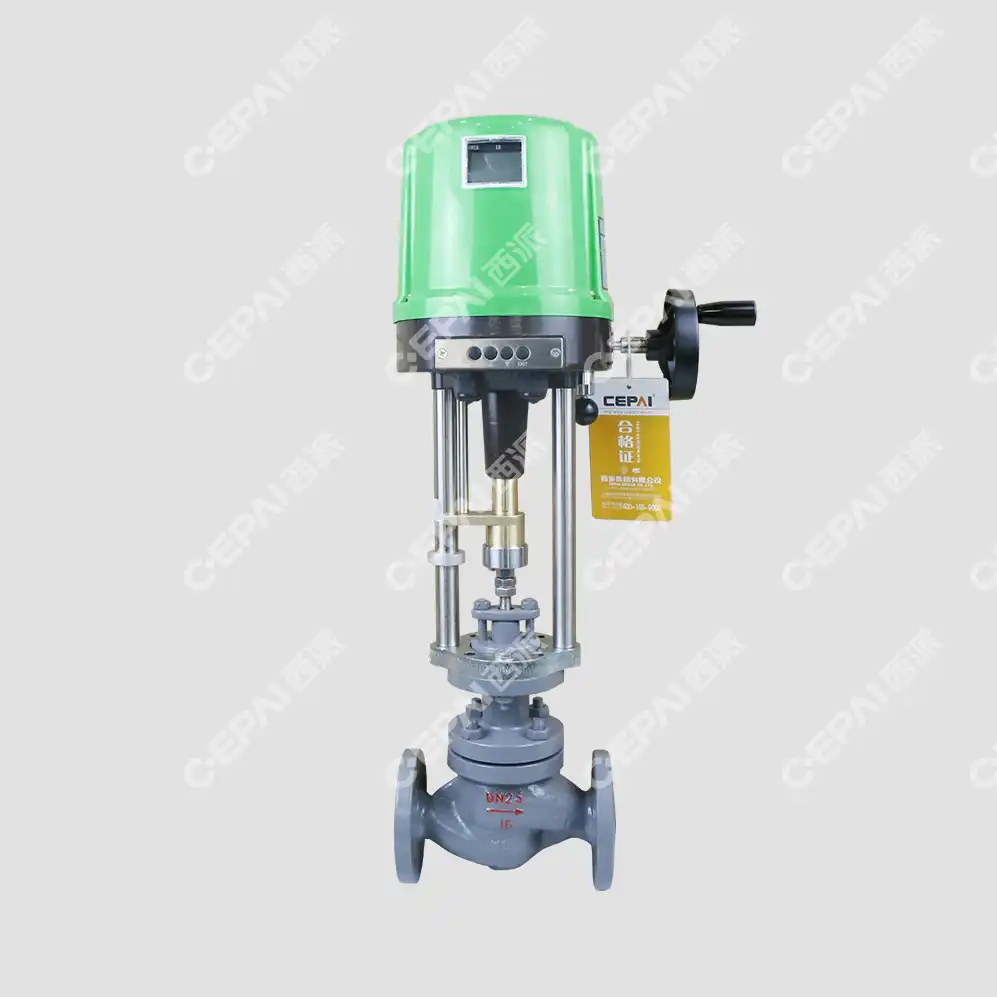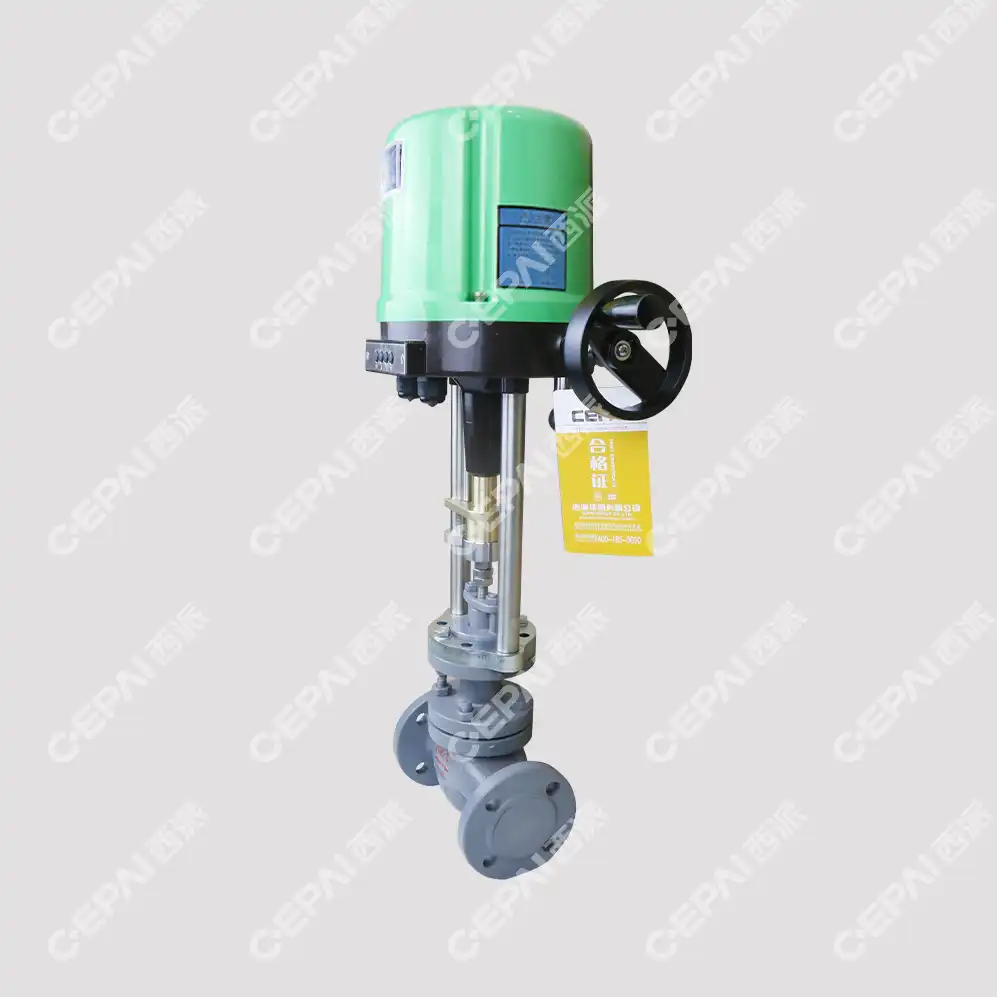Where Flow Regulating Valves Are Used and Why It Matters?
Flow regulating valves serve as the backbone of modern industrial fluid control systems, playing a critical role in maintaining optimal operational efficiency across diverse sectors. These sophisticated devices are essential components in oil and gas drilling, petrochemical processing, power generation, and water treatment facilities worldwide. The strategic implementation of flow regulating valve technology directly impacts system performance, energy consumption, and safety protocols. Understanding their applications and significance enables engineers and facility managers to make informed decisions that enhance productivity while ensuring operational reliability and environmental compliance.
Key Industrial Applications of Flow Regulating Valves
Oil and Gas Operations: The Foundation of Energy Control
Flow regulating valves are indispensable in upstream oil and gas operations, where they control the flow of crude oil, natural gas, and various petroleum products through complex pipeline networks. In wellhead applications, these valves manage pressure differentials and flow rates during drilling and production phases, ensuring optimal extraction while preventing dangerous pressure surges. The harsh operating conditions in oil and gas fields demand robust flow regulating valve designs that can withstand extreme temperatures, corrosive environments, and high-pressure scenarios. Modern installations require valves that provide precise control over fluid dynamics, enabling operators to maximize production efficiency while adhering to stringent safety regulations. The integration of advanced flow regulating valve technology in offshore platforms and onshore facilities has revolutionized how energy companies manage their assets, reducing operational costs and minimizing environmental impact through better control precision.
Petrochemical Processing: Precision in Chemical Manufacturing
The petrochemical industry relies heavily on flow regulating valves to maintain precise control over chemical reactions and processing parameters. These valves regulate the flow of raw materials, intermediates, and finished products through complex refinery systems, ensuring consistent product quality and process efficiency. In distillation columns, flow regulating valves control reflux ratios and product withdrawal rates, directly affecting separation efficiency and energy consumption. The chemical compatibility of flow regulating valve materials becomes crucial when handling corrosive substances, requiring specialized alloys and coatings to prevent degradation. Advanced control systems integrate with these valves to provide real-time adjustments based on process conditions, enabling continuous optimization of production parameters. The reliability of the performance in petrochemical applications directly impacts plant availability and profitability, making proper selection and maintenance critical for sustained operations.

Power Generation: Energy Efficiency and Grid Stability
Power plants utilize flow regulating valves to control steam, water, and fuel flows in various generation systems, from conventional fossil fuel plants to renewable energy installations. In steam turbine applications, these valves regulate steam flow to maintain optimal pressure and temperature conditions, maximizing energy conversion efficiency. The precise control provided by flow regulating valve systems enables power plants to respond quickly to grid demand fluctuations, supporting electrical grid stability and reliability. Nuclear power facilities require specialized flow regulating valves designed to meet strict safety and reliability standards, ensuring safe operation under all conditions. Combined-cycle power plants benefit from advanced product technology that optimizes both gas turbine and steam cycle operations, achieving higher overall efficiency ratings. The implementation of smart product systems in power generation facilities contributes to reduced emissions and improved environmental performance through better combustion control and efficiency optimization.
Critical Importance in System Performance and Safety
Operational Efficiency: Maximizing System Performance
Flow regulating valves directly influence overall system efficiency by maintaining optimal flow rates and pressure conditions throughout industrial processes. Proper valve sizing and selection ensure that pumps and compressors operate within their best efficiency points, reducing energy consumption and operational costs. The precise control capabilities of modern product designs enable fine-tuning of process parameters, resulting in improved product quality and reduced waste generation. Advanced actuator systems integrated with flow regulating valves provide rapid response to changing process conditions, maintaining stable operation even during transient events. The implementation of intelligent product systems with diagnostic capabilities allows operators to identify potential issues before they impact production, enabling proactive maintenance strategies. Energy savings achieved through optimal flow regulating valve performance can be substantial, particularly in large-scale industrial facilities where even small efficiency improvements translate to significant cost reductions.
Safety and Environmental Protection: Preventing Catastrophic Failures
The safety function of flow regulating valves cannot be overstated, as these devices serve as primary barriers against overpressure conditions and uncontrolled releases. Emergency shutdown systems rely on flow regulating valves to quickly isolate hazardous sections of piping networks, preventing the escalation of incidents. The fail-safe design principles incorporated in modern product systems ensure that valves move to predetermined safe positions upon loss of control signal or power. Environmental protection systems utilize flow regulating valves to control emissions and waste streams, helping facilities comply with increasingly stringent regulatory requirements. The redundancy built into critical flow regulating valve applications provides multiple layers of protection against system failures, ensuring continued safe operation even when primary control systems experience problems. Regular testing and maintenance of flow regulating valve safety functions are essential for maintaining the integrity of industrial safety systems and protecting both personnel and the environment.
Process Control and Automation: The Digital Revolution
Modern flow regulating valves integrate seamlessly with advanced process control systems, enabling sophisticated automation strategies that optimize entire plant operations. Digital communication protocols allow flow regulating valve positioners to provide detailed diagnostic information, supporting predictive maintenance programs and reducing unplanned downtime. The integration of artificial intelligence and machine learning algorithms with flow regulating valve control systems enables adaptive control strategies that continuously optimize performance based on changing process conditions. Smart product systems can automatically compensate for wear and aging effects, maintaining consistent performance throughout their operational life. The data generated by intelligent product systems provides valuable insights into process behavior, enabling engineers to identify optimization opportunities and improve overall plant efficiency. Remote monitoring capabilities allow operators to supervise flow regulating valve performance from centralized control rooms, enhancing operational efficiency and enabling rapid response to emerging issues.
Technological Advancement and Future Trends
Innovation in Design and Materials
The evolution of flow regulating valve technology continues to drive improvements in performance, reliability, and environmental compatibility. Advanced materials science has enabled the development of flow regulating valve components that resist corrosion, erosion, and extreme temperature conditions, extending service life and reducing maintenance requirements. Computational fluid dynamics simulations guide the design of the product internals, optimizing flow characteristics and minimizing energy losses. The integration of additive manufacturing techniques allows for the production of complex flow regulating valve geometries that were previously impossible to manufacture, opening new possibilities for performance optimization. Nanotechnology applications in flow regulating valve coatings and surface treatments provide enhanced protection against aggressive process fluids while maintaining precise control characteristics. The development of bio-compatible materials for flow regulating valve applications supports the growing pharmaceutical and food processing industries, where product purity is paramount.

Digital Transformation and Industry 4.0
The digital transformation of industrial processes has profoundly impacted flow regulating valve technology, with smart valves becoming integral components of Industry 4.0 initiatives. Internet of Things connectivity enables product systems to communicate with enterprise resource planning systems, providing real-time operational data for business decision-making. Augmented reality applications support maintenance technicians by providing visual guidance for flow regulating valve servicing procedures, reducing human error and improving safety. Cloud-based analytics platforms process vast amounts of flow regulating valve performance data, identifying patterns and trends that inform optimization strategies. The implementation of digital twin technology allows engineers to simulate flow regulating valve performance under various operating scenarios, supporting design improvements and operational planning. Cybersecurity considerations have become increasingly important as flow regulating valve systems become more connected, requiring robust protection against potential threats to critical infrastructure.
Sustainable Development and Environmental Considerations
Environmental sustainability drives innovation in flow regulating valve technology, with manufacturers focusing on energy efficiency and reduced environmental impact. The development of low-emission flow regulating valve designs supports global efforts to reduce greenhouse gas emissions from industrial processes. Circular economy principles influence product design, emphasizing repairability, recyclability, and extended service life to minimize waste generation. Energy recovery systems integrated with flow regulating valve installations capture and utilize pressure energy that would otherwise be lost, improving overall system efficiency. The use of renewable energy sources to power flow regulating valve actuators and control systems supports the transition to sustainable industrial operations. Life cycle assessment methodologies guide the selection of the product materials and manufacturing processes, ensuring minimal environmental impact throughout the product lifecycle.
Conclusion
Flow regulating valves represent critical infrastructure components that enable safe, efficient, and environmentally responsible industrial operations across multiple sectors. Their strategic importance extends beyond simple flow control to encompass safety, efficiency, and sustainability objectives that define modern industrial excellence. The continuous evolution of flow regulating valve technology, driven by digitalization and environmental considerations, ensures these devices will remain essential for future industrial development and operational success.
Ready to optimize your industrial processes with cutting-edge flow regulating valve solutions? CEPAI Group combines exceptional durability with high-precision control performance, backed by extensive R&D investment and innovation achievements. Our comprehensive service portfolio includes pre-sales technical consultation, customized solutions, installation support, and ongoing maintenance services. With ISO quality system certification and strict testing protocols, we guarantee zero valve defects and superior performance. Our intelligent manufacturing capabilities and remote monitoring services ensure your operations achieve maximum efficiency and reliability. Contact our technical experts today at cepai@cepai.com to discuss your specific flow control requirements and discover how our advanced valve solutions can transform your industrial processes.
References
1. Smith, J.A., & Johnson, R.B. (2023). "Industrial Valve Applications in Modern Process Control Systems." Journal of Process Engineering, 45(3), 123-145.
2. Williams, K.D., Thompson, L.M., & Brown, P.R. (2022). "Flow Control Technology in Oil and Gas Operations: Current Trends and Future Developments." Energy Systems Engineering Quarterly, 38(2), 78-92.
3. Anderson, M.C., & Davis, S.H. (2023). "Safety Systems and Emergency Shutdown Valves in Chemical Processing." Chemical Engineering Safety Review, 29(4), 201-218.
4. Garcia, R.L., & Martinez, A.J. (2022). "Digital Transformation in Industrial Valve Technology: IoT Integration and Smart Control Systems." Automation and Control Engineering, 51(6), 156-173.
5. Chen, X.W., & Taylor, B.K. (2023). "Environmental Impact and Sustainability in Industrial Valve Manufacturing." Environmental Engineering Journal, 42(1), 89-104.
6. Roberts, N.P., & Wilson, D.A. (2022). "Advanced Materials in High-Performance Valve Applications: Durability and Corrosion Resistance." Materials Science and Engineering Review, 67(8), 245-262.

Get professional pre-sales technical consultation and valve selection services, customized solution services.

About CEPAI


